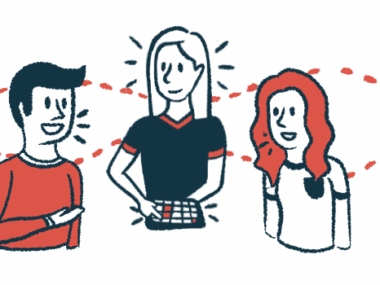Activities Mark Alzheimer’s and Brain Awareness Month Across June
Written by |

The start of summer holds the promise of beach trips, barbecues, and vacations, but for people with Alzheimer’s disease and their caregivers, family, and friends, June also means Alzheimer’s and Brain Awareness Month.
Monthlong initiatives aim to honor the more than 55 million people living with dementia worldwide, according to Alzheimer’s Disease International.
As it does each June, the Alzheimer’s Association will commemorate Alzheimer’s and Brain Awareness Month by showcasing the color purple. The organization encourages Facebook users to change their profile picture frame to its purple-themed design, and for people to use the hashtag #ENDALZ as part of their social media profiles.
Actors including Peter Gallagher of “The O.C.” and Oscar Nunez from “The Office,” along with Olympic gold medalist Jeff Henderson and artistic gymnast Laurie Hernandez, have all taken the pledge to “go purple.”
For the summer solstice on June 21, the Alzheimer’s Association will hold its annual “The Longest Day” event, inviting all those affected by the disease to participate in a fundraising activity of their choice and to create a fundraising page on the organization’s website. A mobile app for the fundraiser is available for download.
The association offers a number of ideas for fundraisers, in categories that range from exercise, sports, and gaming to parties and events, hobbies, and arts. It also provides ideas about how to incorporate physical distancing into events because of COVID-19. A fundraising page doesn’t need to be tied to an activity, the group notes, and can instead be for a life milestone, such as a graduation, wedding, or birthday.
The Greensboro Grasshoppers, a minor league baseball team in North Carolina, will be supporting the Alzheimer’s Association throughout June as part of its “Alzheimer’s Association Awareness Nights,” with events sponsored by Bankers Life and marking the 20th anniversary of the company’s partnership with the association. Bankers Life is asking fans to wear purple to the team’s June 3, June 17, and June 24 home games, and will give purple sunglasses to the first 300 spectators who stop by its table for the June 24 game. Alzheimer’s jerseys will also be worn by players and auctioned off for the Alzheimer’s Association — Western Carolina Chapter’s The Longest Day campaign.
Also on tap in the U.S. are Ride to End ALZ fundraising events for the association set for June 4 in New England and June 12 in Colorado, and elsewhere later in the year. Those interested in planning their own bike rides are free to do so through the Ride to End ALZ Spoke Series, which operates much like “The Longest Day” personal fundraisers.
The National Institute on Aging, part of the National Institutes of Health, includes on its website a number of ways to get involved this awareness month. The NIA recently celebrated the 10-year anniversary of the National Plan to Address Alzheimer’s Disease, established to accelerate innovation in Alzheimer’s research.
On June 15 from 1–2 p.m. EST, the NIA will host an #AlzScience Twitter Chat on its account, covering the latest in Alzheimer’s research and resources available for these scientists. The national agency also will tweet information on Alzheimer’s and brain tissue donation throughout June using the hashtag #EndALZ.
As part of the Twitter chat, organizers will pose a series of questions to those taking part, such as “What is one resource that every Alzheimer’s disease researcher should know about?,” “What is the most exciting Alzheimer’s research advance in the past 10 years?” and “What resources or strategies are you using to increase diversity in clinical trials?” Users are asked respond using the hashtag #AlzScience.
Events also take place on NIA’s Facebook page, sharing resources and personal stories related to the basics of Alzheimer’s; tips on care, support, and future planning; Alzheimer’s caregiving; and brain tissue donations.
The Alzheimer’s Foundation of America, meanwhile, will host recurring Facebook pop-ups, fireside chats, and webinars discussing topics such as motivation, cultural disparities, pharmacy visits, ambiguous loss — addressing the mental loss of loved ones to the disease — and health disparities for veterans.






